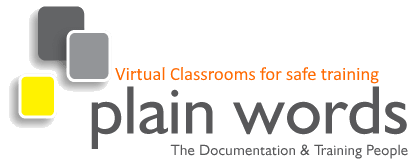Training Bulletin Issue 67
Writing for the differently technical
It's been a long time since anyone was a true Renaissance Man or Woman. These lofty individuals were people who knew a lot about most things, in an age when it was thought that there would be a limit to human knowledge, and that one day we would in fact know all about everything.
It hasn't quite worked out like that, has it? What we have instead is increasing specialisation, where many of us know a lot about not very much. And problems arise when we have to explain that to a colleague who may also know a lot, but about something different. This situation happens daily in any modern business or organisation. Most large companies and even many small ones, operate at levels of complexity undreamt of by renaissance scholars, and they do so by employing many expert specialists. But we can't afford to stay in our comfortable vertical silos where everybody knows what we're talking about – we need to have people in other silos understand, and we need to understand them too.
Nowhere is this more obvious than in technical reports and documents. Organisations rely on them to provide the means to communicate scientific or technical information. If you are an expert in a particular area, you must be able to convey in writing the result of your expertise to your colleagues, management or other organisations. But when they are not familiar with your discipline, its vocabulary and exigencies, this becomes increasingly difficult.
A good illustration of the problem is in the increasing difficulty scientists have trying to convince political leaders of the realities of climate change. The United Nations publishes regular reviews of worldwide research into climate change and these reports are intended to inform international policy. A recent study found that these reports are increasingly difficult to understand, unfortunately at a time when some governments' commitment to addressing contributing factors is wavering.
Writing for less technical readers
Or writing for differently technical readers – this is not just a problem for scientists, it's a challenge most engineers, technicians and product designers face in an increasingly complex technological environment. If it's your job to do this, here are some suggestions.
Focus on one clear message
Look at what you are trying to say in your document or report. What is the most important thing in it? If you were trying to convey that message to someone by shouting it to them across a noisy, crowded room, what would you be yelling? That is your key message and your report needs to focus on that. Don't dilute it or confuse the reader by including content that is not central to supporting your key message.
Why are your readers reading it?
Who are your readers, what are their jobs and what sort of information do they need from you? How will your content fit in with that? How long do you think they will spend reading your report? Clue - how long do you spend on something that you find hard to follow before you give up in frustration?
Make structure work for you
How are you going to build your document? The structure will depend on the type of information you have and how you think your readers will approach it. There is no one right way to structure content so you need to devise a structure that will convey your clear message to your readers even if they only skim read.
Make your writing readable
Just because it's technical doesn't mean you have to use long, complex sentences. Remember that you should be trying to express not impress!
Try to make your point succinctly. Don't include any unnecessary words or 'padding'. Make sure that any technical words or acronyms you use are understood by your reader.
These tips and several others are included in Plain Words' Eight Principles of Business Writing. We cover them in many of our courses, or for only £49 you can complete a one-hour online self study module that explains them in detail, with examples.
Writing Technical Documents and Reports – new course
This technical writing course has been designed to build on the skills of scientists, engineers, technicians, designers and project managers who write technical documents or reports.
If your job involves writing any of these…
- Recommendation or guidance reports Feasibility reports
- Evaluation reports
- Activity reports
- Project reports
- Laboratory or field research documents
- Technical specifications for products
- Technical memos or emails
- Short operating policies and procedures
…this course is for you.
We can run the course in-house, or you can book on a public course – check available dates on the Schedule page or contact to find out more.

